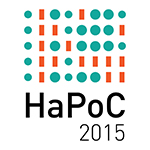During the first decades after the 1950's, digital computer aided modeling has mostly been twofold. On the one hand, based on its ability to emulate any computing device, the computer was taken as a formal calculator. On the other hand, based on its ability to make numerous but advantageously controllable approximate computations, the computer was used as a numerical solver - a numerical simulator - of mathematical models. As a consequence, the computer was seen by modelers either as a model in itself (an analogue) or as an instrument (a tool) which permitted the resolution and, through that, the manipulation of some pre-given mathematical model.
Since the 1990's, the situation has become richer and more complex. The delayed but now vibrant development of a kind of programming - which techniques date back at least to the 60's - called object-oriented programming (OOP) and consequently of object-oriented modeling (OOM) in most empirical sciences and techniques has lead more and more modelers to see computer simulations as something else than approximate computations of models: complex computational models are more and more used as some kind of “substitutes” and not only as analogues or tools.
This talk will try to contextualize and to re-estimate the epistemological implications of such turn. In particular, it will show that a too restrictive definition of “computer simulation” – e.g. not sufficiently aware of the span of Von Neumann's initial ideas - prevents us to measure, characterize and temper this somewhat excessive and worrying conception of simulations as “substitutes”. The OOP turn is a fascinating historical and epistemological object in that it reveals us what we sometimes had forgotten about the computer and its very idea. This turn has implications not only in the ways modelers use and see computers but also in the ways epistemologists have to precisely understand what a computer can be, can do and - perhaps - can't do.
- Presentation
- Other

 PDF version
PDF version
